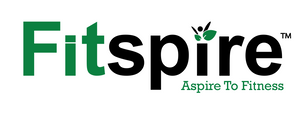Pregnancy can be one of the most happy and exciting moment in a woman’s life. The moment a woman discovers about her pregnancy, the range of emotions overwhelmed – most notably, confusion and worry sets in once the excitement wears off.
Women are generally aware that smoking and alcohol can negatively affect them, but they rarely think about supplements and how they impact the health and development of a foetus because there’s a lot of misinformation when it comes to the supplementing during pregnancy.
According to Gynecologists, a woman’s intake of essential nutrients during pregnancy should include
- Protein
- Carbohydrates
- Fats
- Vitamins
- Minerals
A balanced nutritional diet that includes fruits, vegetables, nuts, seeds are the best way to receive the necessary nutrients. But vitamin supplementing can also be beneficial as well as recommended by the gynecologist.
Remember, supplements do not replace a healthy diet, but ensure that a woman is receiving enough nutrients. It is always important to note that pregnant women should take supplements from a direct recommendation of health care provider or gynecologist.
SUPPLEMENTS CONSIDERED SAFE DURING PREGNANCY
- Prenatal vitamins
Prenatal vitamins are specially formulated multivitamins that address micronutrient deficiency during pregnancy and lactation periods. They reduce a pregnancy complication that increases protein in the urine and raises blood pressure. Since they contain vitamins and minerals that pregnant women need, taking additional vitamin or mineral supplements without doctor’s recommendation may not be necessary. Prenatal vitamins are often prescribed by doctors and available over-the-counter
- Probiotics
Probiotics improve gut health by adding the amount of good bacteria in the digestive tract. Adding a probiotics supplement can reduce the risk of postpartum depression, gestational diabetes, infant eczema and dermatitis the risk of infant experiencing skin problems. Many studies have shown that probiotics are safe during pregnancy.
- Folate
Folate is a B vitamin that is a critical component in the production of red blood cells, DNA synthesis, fetal growth and development. Folic acid supplements converted into active folate in the body. It reduces the risk of birth defects like cleft palate or neural tube defects.
- Vitamin D
This fat-soluble vitamin is important for bone health, cell division and better immune function. A lack of vitamin D increases the risk of gestational diabetes, preeclampsia and preterm birth. All pregnant women should speak to their doctor regarding vitamin D deficiency and proper supplementation
- Magnesium
Magnesium is a mineral involved in hundreds of chemical reactions in body. It has important role in muscle, immune, and nerve function. Without adequate amounts, there is a risk of chronic hypertension and premature labour.
- Iron
The need for iron supplement increases significantly during pregnancy. Iron is critical for transportation of oxygen and to carry out healthy foetal development. Deficiency of iron has been linked to infant anaemia, maternal depression and preterm delivery.
- Fish oil
Fatty acids in fish oil are critical for fetal brain health and development. Supplementing on it is safe, but if you plan to consume fish oil through fatty fish, beware of high mercury levels found in it. Always consult your gynecologist before taking fish oil.
Nutrition is always a top priority before, during and after pregnancy. So, the right supplements should not be ignored. You need to seek your doctor’s advice to determine the right dosage, as well as to discuss any potential risks or concerns regarding it.


